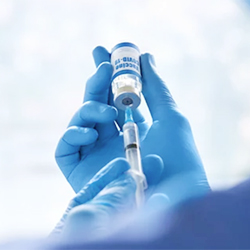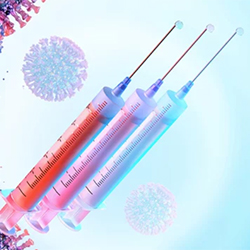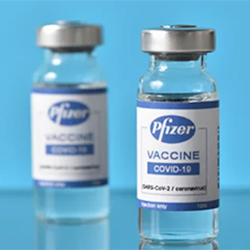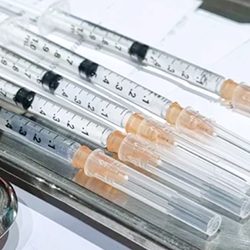Originally published by our sister publication, Pain Medicine News
The CDC’s new recommendation for immunocompromised people to receive a third COVID-19 vaccination was championed by the American College of Rheumatology (ACR).
The recommendation applies to all patients on immunosuppressive drugs such as high-dose corticosteroids, alkylating agents, antimetabolites, tumor necrosis factor blockers and other biologic agents, and only involves the Pfizer-BioNTech and Moderna mRNA vaccines (notably not the one-shot Johnson & Johnson vaccine).

The agency also recommends that patients receive a third dose of the same vaccine they received for their first or second shot, and that patients should be given their third shot at least 28 days after their second dose. This decision follows studies, such as one recently published in The New England Journal of Medicine (2021;385:661-662), showing that as many as half of organ transplant patients who had no measurable antibodies after the first shot developed a vaccine response after a third dose.
“This will be enormously important for our immunocompromised patients, and we are thankful to the FDA and CDC for hearing our concerns, recognizing the needs of this population and moving forward,” said David Karp, MD, PhD, the president of the ACR, in the statement. “We look forward to working with the agencies as they communicate this new recommendation.”
The society also strongly recommends that all immunocompromised patients, even those who are fully vaccinated, continue wearing masks, socially distancing and avoiding crowds, especially in poorly ventilated areas. It also states that “close contacts of immunocompromised people should be strongly encouraged to be vaccinated against COVID-19.”
These preventive measures are still important, alongside patient vaccination, because rheumatology patients are more likely to have a lower vaccine response and are more likely to experience breakthrough infections.
However, immunosuppressive drugs and their doses have different levels of effect on vaccination, Karp said. “Not all medications that our patients take have been shown to have significant effects on responses to vaccination. Patients should ask their provider if they are likely to see a beneficial effect from additional vaccination,” he said. “Luckily, we have not seen any safety signals in patients with autoimmune and rheumatic diseases from the COVID-19 vaccines, so there should be no concern for the third dose.”




